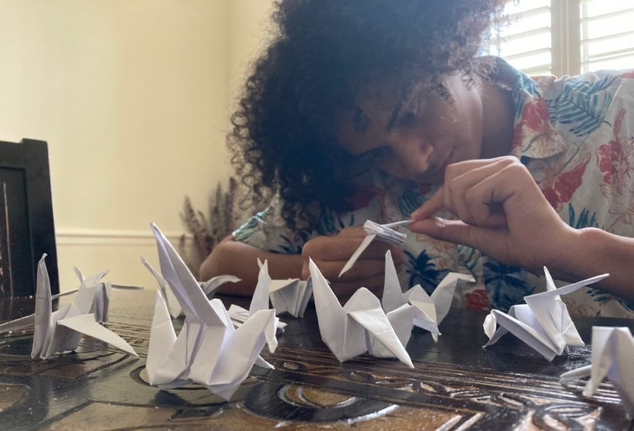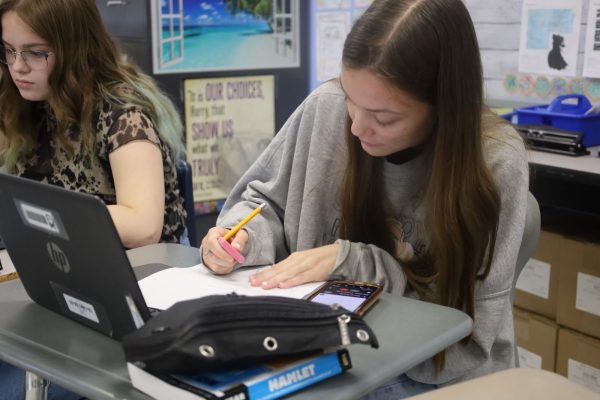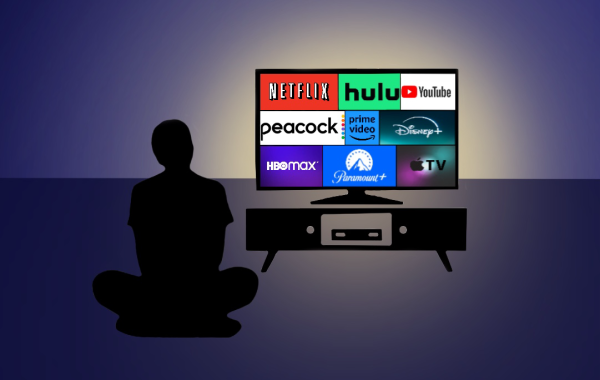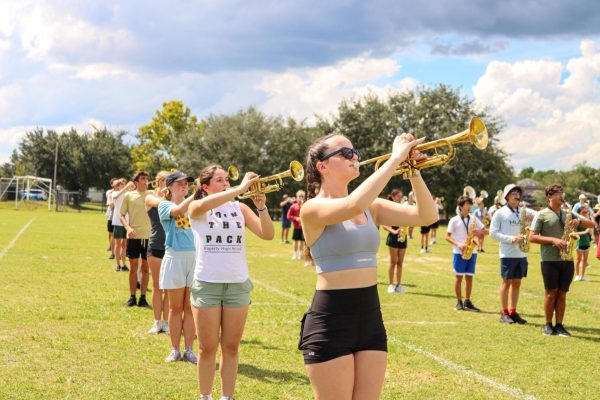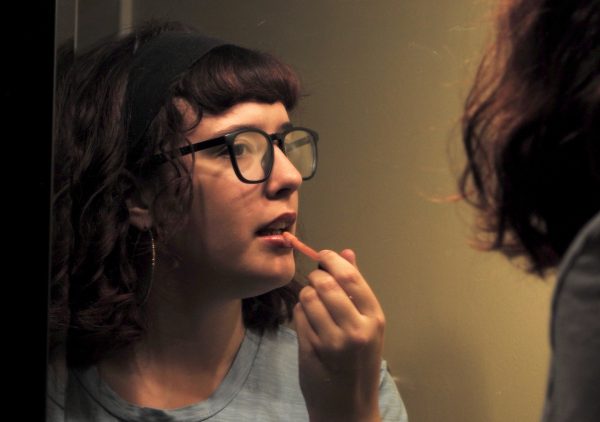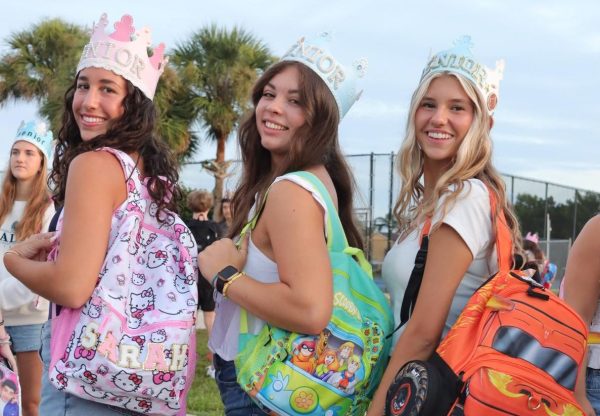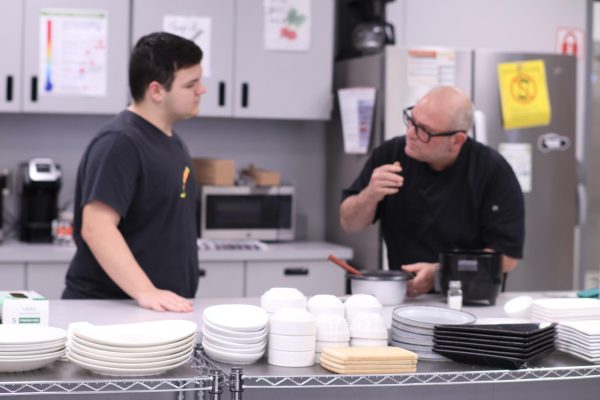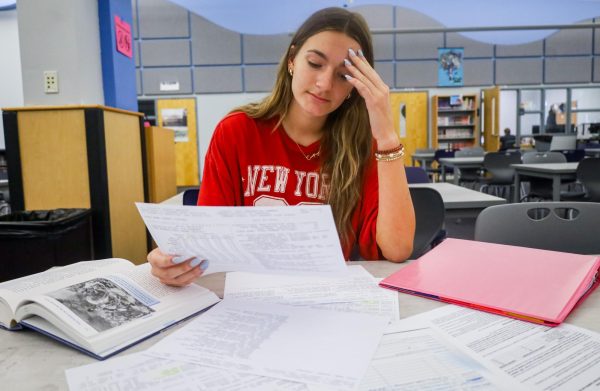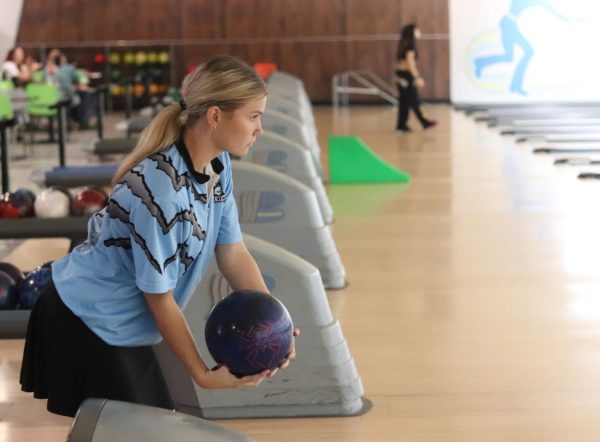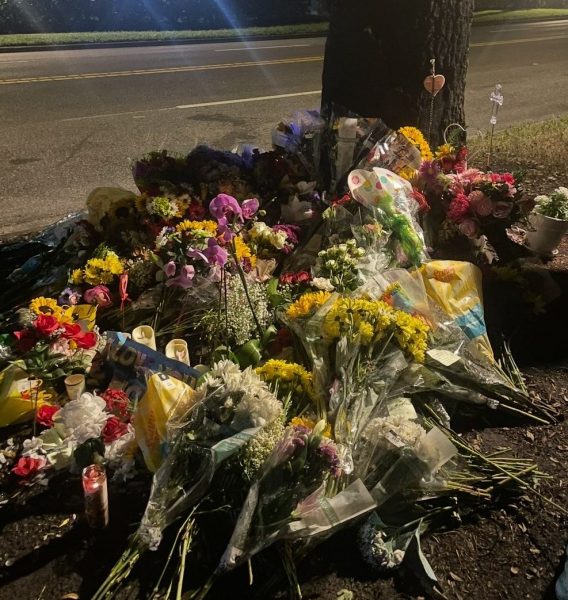The scramble for scholarships
photo by Zakaria Zeini
Senior Hamza Zeini folds origami cranes at home, that will count as service hours towards the Asian Culture Club. The club will be donating these to the Children’s Peace Monument in Hiroshima, Japan.
Florida’s Bright Futures scholarship is one of the most popular programs that high schoolers apply for, given how accessible it is. It only calls for a certain SAT or ACT test score and community service hours gathered over four years of high school, for some college payments. However, the unprecedented pandemic has hindered many students attempting to complete their requirements, especially upperclassmen.
Hagerty requires students’ Bright Futures application to be completed by December of their senior year so counselors can then approve and submit them. There are two options: the Florida Medallion Scholarship (75 hours of community service and a minimum SAT score of 1210 or ACT score of 25) or the Florida Academic Scholarship (100 hours and a minimum SAT score of 1330 or ACT score of 29).
The FAS pays for 100% of tuition and fees, with an additional $300 per semester; recipients of the FMS will only receive funds for 75% of tuition and fees, with no additional $300 per semester. Such a hefty scholarship is appealing to many students, which has caused some panic in the past few months over not finishing in time.
“I still need 80 hours,” junior Jason Arcena said. “Due to the pandemic, it has been a struggle to get any hours lately.”
Upperclassmen who planned ahead may have already achieved or are close to achieving a qualifying test score, and if they do not already have all their hours then they are almost done. Senior Josh Hobbs only needs 15 more hours, but COVID-19 was initially a cause for worry.
“A summer camp I volunteered at got canceled over the summer. This made me panic a little, because I relied so much on the hours that I would gain from that camp,” Hobbs said. “I then reached out to my church to see if there were other opportunities, and thankfully there were a good amount.”
Hobbs ended up filming videos for elementary Virtual Vacation Bible School at Crosslife Church over the summer, all while following CDC guidelines like social distancing, wearing masks and regularly sanitizing. He plans to gain his final 15 hours over the next several weeks with the same organization.
Other students have not had as much luck as Hobbs, such as Arcena. While Arcena still has an additional year to complete his hours, he only has 20 and feels that his options are much more limited now.
For students who are struggling with this, guidance has begun promoting VolunteerMatch, a website that provides virtual community service hours. Arcena and many others expect to obtain the majority of their remaining hours through this method.
“I do find it a bit stressful completing everything by next year, but I feel really confident that I can complete everything by then. ” Arcena said. “Volunteering is still meaningful even if we are in a pandemic.”
Multiple clubs on campus are also searching for resolutions to the recent community service deficit, with an emphasis on virtual opportunities. A lot of students rely on organizations like Key Club to find places to volunteer at, so leaders like junior Sana Yooseph, who serves as the Division 10A Lieutenant officer, have been seeking alternatives.
One virtual event Key Club hosted that counted towards students’ hours was via UNICEF’s Math Games for Good Challenge. Those who participated answered quiz questions online for four hours straight, and from that they were able to donate nearly $2,000 to UNICEF.
While virtual volunteering has proven an adequate replacement for the time being, Yooseph still wishes they could provide more in-person opportunities. Key Club used to cook dinners for Ronald McDonald House Charities, dedicated to families with sick children, twice a month. Those had to be canceled in light of health risks.
“Events like that… where you get to socialize and work with people, it’s harder to do online. But we’re definitely adjusting,” Yooseph said.
The Executive Board of Key Club also released a Quarantine Guide,
which Yooseph has been sending out to various clubs to provide inspiration on how to remain active in the community.
Perhaps the larger issue students have been confronted with is taking the SAT or ACT in time to get a qualifying score. The minimum SAT score for the FAS leapt up significantly from last year’s 1290 to this year’s 1330 requirement, and on top of testing cancelations over the summer and limited space in upcoming testing sites, students have faced many obstacles in completing their obligations for the scholarship.
Standardized tests like the SAT and ACT are heavily emphasized in Florida, as Bright Futures is exclusive to the state. Florida is the only one of two states in the country whose universities still require those test scores in applications, so the pressure on students is high.
Hobbs recently took his SAT at the end of August at Oviedo High School, because earlier testing opportunities were canceled during the height of quarantine.
“I felt safe while taking the test because of the precautions that were taken by the testing location,” Hobbs said. “I didn’t think any of the COVID-19 guidelines inhibited my testing environment.”
Coronavirus was an unexpected bump in the road that entailed a lot of problem solving across the education system, and outside of high school itself, it has only intensified the pressure on students looking beyond that. Bright Futures and administrators continue to adapt to the situation, while still enabling regular testing and volunteering opportunities.
“We all pitch in for proctoring and administering exams,” counselor Nick Maby said. “[And] we encourage students to keep practicing social distancing, washing hands, and wearing a mask while volunteering.”
Your donation will support the student journalists of Hagerty High School. We are an ad-free publication, and your contribution helps us publish six issues of the BluePrint and cover our annual website hosting costs. Thank you so much!

